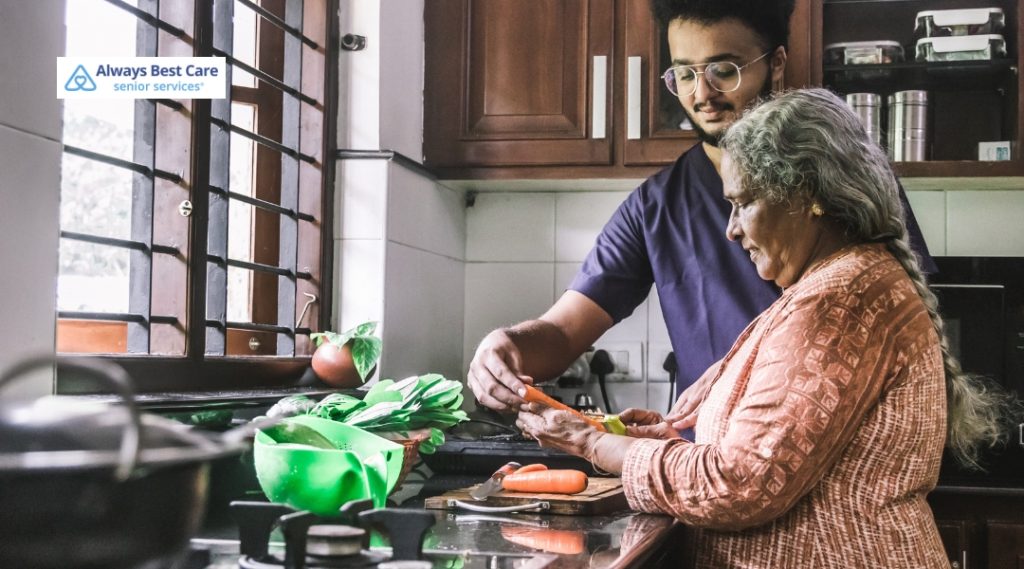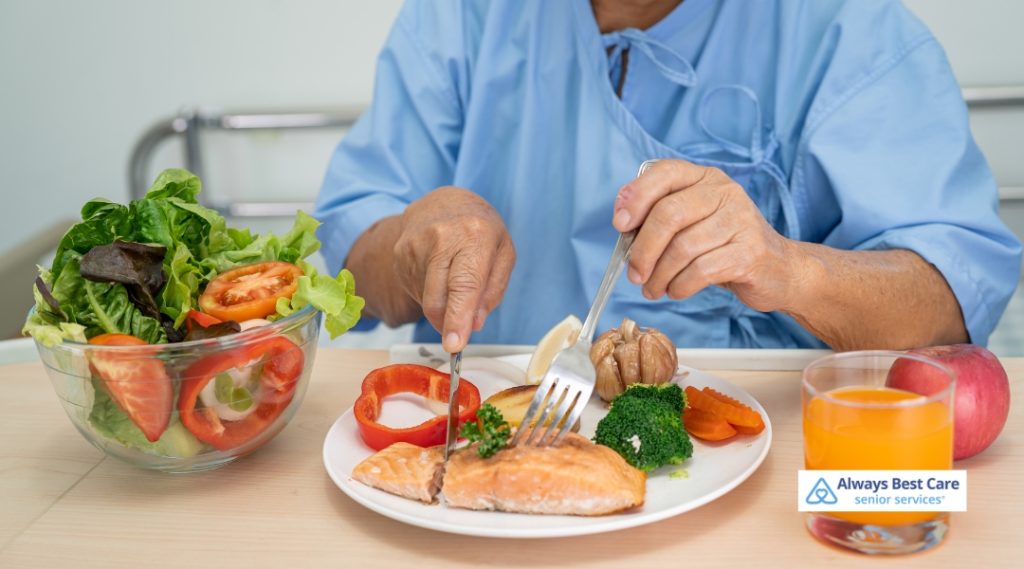Encouraging Healthy Eating: How to Boost Your Senior’s Appetite in Spring, TX

As we age, maintaining a healthy appetite can become a challenge.
Many seniors face a decline in appetite due to various factors, including changes in taste and smell, medication side effects, dental issues, or even feelings of loneliness.
This decrease in appetite can lead to weight loss, malnutrition, and reduced energy levels, ultimately affecting overall health and independence.
So, how can we help our aging loved ones regain their interest in food?
What you will learn:
- The common causes behind decreased appetite in seniors and how to identify underlying issues affecting their nutrition.
- Practical strategies to make meals more appealing and enjoyable.
- Healthy eating habits and meal planning ideas tailored to seniors’ needs, plus how professional caregivers can offer support with nutrition, meal preparation, and companionship.
Table of Contents
Understanding the Underlying Causes
Before we can tackle the problem, it’s crucial to understand why your senior might not be eating well. Common reasons include:
- Medication side effects like nausea or dry mouth.
- Dental issues or ill-fitting dentures.
- Difficulty chewing or swallowing.
- Depression, isolation, or grief.
- Chronic health conditions.
- Loss of taste or smell.
Consulting with a doctor can help identify any medical causes or medication-related side effects that might be affecting appetite. Addressing these underlying issues is the first step toward improving their relationship with food.

Making Meals More Appealing
Seniors are more likely to eat when food looks and smells good. Here are some tips to make meals more appealing:
- Enhance visual appeal by including colorful fruits and vegetables.
- Use attractive plates and add herbs and spices to boost flavor without excess salt.
- Create a pleasant atmosphere with soft lighting and background music.
Healthy Eating Habits for Seniors
Encouraging healthy eating habits is key to maintaining overall health. Here are some healthy eating habits for seniors:
- Eat whole foods like fruits, vegetables, and whole grains.
- Get enough protein to preserve muscle mass.
- Limit sodium and added sugars.
Serving Smaller Meals
Large meals can be overwhelming, especially for those with smaller appetites. Try offering:
- Smaller portions more frequently throughout the day.
- Nutrient-dense snacks like yogurt, smoothies, cheese, or nuts.
Sharing Meals
Eating is often a social activity. Sharing meals with your loved one can make a big difference. If you can’t be there regularly, arrange for others to join them.
Making Eating Easier
If chewing or swallowing is difficult, focus on:
- Soft, easy-to-eat foods like scrambled eggs or soups.
- Properly fitting dentures and addressing any mouth pain.

Planning Ahead and Getting Creative
Meal planning can eliminate stress and encourage variety.
Involve your loved one in choosing meals and groceries so they feel more engaged.
Preparing meals ahead of time and trying new recipes can help renew their interest in eating.
How We Can Help
At Always Best Care of Spring, our experienced caregivers can assist with meal planning, grocery shopping, and preparing nutritious meals tailored to your loved one’s preferences and dietary needs.
Whether it’s encouraging hydration, adjusting meals for swallowing difficulties, or simply providing companionship during mealtime, we’re here to help make eating a positive experience again.

FAQ
Q: What are common reasons for decreased appetite in seniors?
A: Common reasons include medication side effects, dental issues, difficulty chewing or swallowing, depression, chronic health conditions, and loss of taste or smell.
Q: How can I make meals more appealing to seniors?
A: Enhance visual appeal with colorful foods, use attractive plates, and create a pleasant atmosphere with soft lighting and music.
Q: What are some healthy eating habits for seniors?
A: Eating whole foods, getting enough protein, and limiting sodium are key habits.
Q: How can I help a senior with difficulty chewing or swallowing?
A: Focus on soft, easy-to-eat foods and ensure properly fitting dentures.
Q: Can caregivers help with meal planning and preparation?
A: Yes, caregivers can assist with meal planning, grocery shopping, and preparing nutritious meals.
Schedule Your Free Consultation With Always Best Care of Spring!
If your aging loved one is struggling with appetite loss or needs support with daily routines, contact Always Best Care of Spring at (832) 585-1941 to schedule a care consultation. Our compassionate caregivers are here to support health, wellness, and independence—starting right at the kitchen table.





